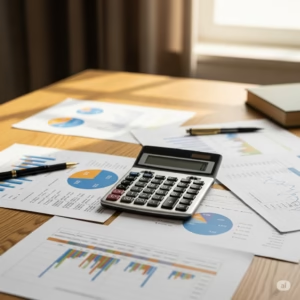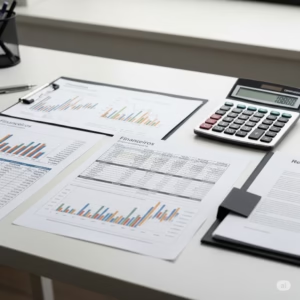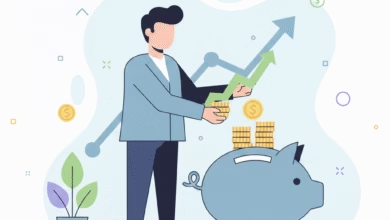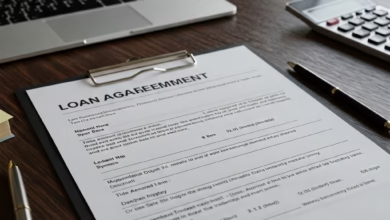What happens if I don’t pay back a loan?
Understand what happens if you don't pay off your loan

Taking out a loan can be a helpful financial tool, but life happens, and sometimes, repaying it becomes a challenge. It’s a question many people secretly worry about: “What really happens if I can’t pay my loan?” Ignoring loan payments can lead to a cascade of serious financial and legal consequences. This article will clearly explain the repercussions of defaulting on a loan, helping you understand the risks and, more importantly, how to avoid this stressful situation.
Understanding Loan Default: When a Missed Payment Becomes a Big Problem

Missing a single loan payment usually won’t immediately trigger a full default, but it’s the first step down a difficult path.
- Late Payment Fees: The moment your payment is late, you’ll likely incur a late fee. These vary by lender and loan type.
- Grace Period: Many loans have a grace period (e.g., 5-15 days) after the due date before a late fee is applied or the payment is reported as late to credit bureaus.
- Default: A loan is generally considered in default when you miss multiple payments (e.g., 30, 60, or 90 days past due, depending on the loan terms and lender policy) or fail to meet other terms of the loan agreement. This is when the serious consequences begin.
1. Damaged Credit Score: A Long-Term Financial Setback
This is often the first and most significant consequence you’ll face.
- Negative Marks on Your Credit Report: Missed payments are reported to credit bureaus (like Serasa, Boa Vista SCPC, SPC Brasil in Brazil, or Equifax, Experian, TransUnion in the US). These “derogatory marks” stay on your credit report for years (e.g., up to 7-10 years).
- Lower Credit Score: Each missed payment, especially if it’s 30+ days late, will cause your credit score to drop significantly. A lower score makes it much harder to:
- Get approved for future loans (mortgages, car loans, personal loans).
- Qualify for credit cards with good terms.
- Get favorable interest rates, leading to higher costs if you do get approved.
- Rent an apartment, get certain jobs, or even secure utility services without a deposit.
- Reduced Creditworthiness: Lenders will see you as a high-risk borrower, potentially shutting you out of mainstream credit markets.
2. Accumulation of Fees and Interest: Your Debt Grows Faster

When you stop paying, your debt doesn’t just sit there; it actively grows.
- Late Fees and Penalties: Each missed payment adds more fees, increasing your overall debt.
- Higher Interest Rates: Some loan agreements include a “default interest rate” clause, meaning your interest rate can dramatically increase once you’re in default.
- Compounding Interest: Interest continues to accrue on the growing balance, making it harder to catch up. What started as a manageable loan can quickly spiral out of control.
3. Harassment from Debt Collectors: Constant Communication
Once your loan goes into default, your lender may try to collect the debt themselves or sell it to a third-party debt collection agency.
- Persistent Calls and Letters: You’ll likely receive frequent phone calls, emails, and letters demanding payment.
- Legal Protections: While debt collectors can be persistent, there are laws regulating their behavior (e.g., they cannot harass, threaten, or use deceptive practices). Know your rights.
- Impact on Well-being: Constant collection efforts can be incredibly stressful and impact your mental and emotional health.
4. Legal Action: Lawsuits and Wage Garnishment
If collection efforts fail, the lender or debt collector may decide to take you to court.
- Lawsuit: They can sue you to recover the money owed. If they win (and they usually do if you haven’t paid), a judgment will be entered against you.
- Wage Garnishment: A court order can allow them to legally take a portion of your wages directly from your paycheck until the debt is paid.
- Bank Account Levy: They might also be able to freeze funds in your bank account to satisfy the debt.
- Liens on Property: For some debts, they could place a lien on your property (like a house or car), meaning they have a claim to it if you sell it.
5. Repossession or Foreclosure: Losing Your Assets (for Secured Loans)

This is a critical consequence for secured loans, where an asset (like a car or house) is used as collateral.
- Auto Loans: If you default on a car loan, the lender can repossess your vehicle. They can then sell it, and you’ll still be responsible for any remaining balance if the sale price doesn’t cover the debt (a “deficiency balance”).
- Mortgages (Foreclosure): If you default on your mortgage, the lender can initiate foreclosure proceedings, leading to the forced sale of your home to repay the debt. You will lose your home and any equity you’ve built.
- Other Secured Personal Loans: If you used other assets (like jewelry, investments, or even future income streams) as collateral, those could be seized.
6. Difficulty Getting Future Loans and Financial Services: A Long-Term Struggle
The negative impact of a default on your credit report will follow you for years, making many financial transactions difficult.
- Higher Deposit Requirements: Landlords, utility companies, and even cell phone providers might demand higher deposits.
- Insurance Premiums: Your credit history can influence insurance rates, potentially leading to higher premiums.
- Limited Access to Credit: You might be limited to high-interest “subprime” lenders, if you can get approved at all.
- Professional Licenses: In some professions, financial responsibility (or lack thereof) can impact your ability to get or renew licenses.
What to Do if You Can’t Pay Your Loan: Proactive Steps are Key

If you’re struggling to make loan payments, don’t wait until you’re in default. Be proactive!
- Contact Your Lender Immediately: As soon as you foresee a problem, call your lender. Explain your situation. They may be willing to work with you on options like:
- Payment deferral or forbearance: Temporarily pausing or reducing payments.
- Loan modification: Changing the terms of your loan (e.g., lower interest rate, longer term, lower monthly payment).
- Hardship programs: Specific relief programs for borrowers facing financial difficulties.
- Review Your Budget: Identify where you can cut expenses to free up cash for payments.
- Explore Other Options:
- Sell Unused Assets: If you have items you no longer need, selling them can provide quick cash.
- Take on Extra Work: A temporary side gig might help you catch up.
- Seek Credit Counseling: Non-profit credit counseling agencies can help you create a budget, explore debt management plans, and negotiate with creditors.
- Understand Your Rights: Familiarize yourself with consumer protection laws regarding debt collection in your region.
Final Verdict: Avoid Default at All Costs
The consequences of not paying a loan are severe and can have a long-lasting negative impact on every aspect of your financial life. While it can be scary to admit you’re struggling, open communication with your lender and proactive steps to manage your debt are always the best approach. Don’t bury your head in the sand; face the challenge head-on to protect your financial future.





